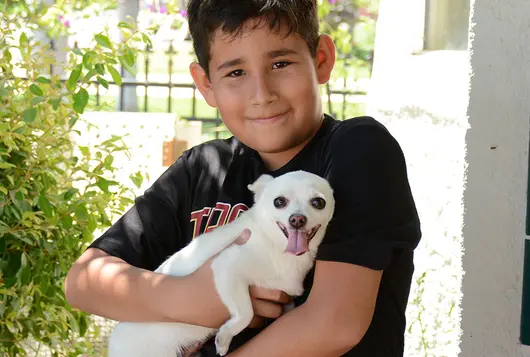5 Tips for Effective Foster Communication

It’s important to make sure that both your new and established foster families have a good experience so that they will continue fostering for your organization in the future, and a big part of their experience is communicating with your staff members.
Check out these five tips to help you have effective and positive conversations with your foster families:
Think About the Flow
A streamlined flow is a key piece of having an effective conversation.
- Start by thanking the foster family for contacting your organization, state your name, and ask how you can assist.
- During the conversation, acknowledge that you can help before jumping into solutions.
- Anticipate their needs. Are there any other services or resources you can provide in the moment that they may benefit from?
- When ending your interaction, make sure to thank them for their time and patience, especially if it was a lengthy or difficult conversation. You can also quickly refer back to the content discussed. For example, if your foster caregiver called about a medical concern with their foster animal, you can end the conversation by saying “Thank you for coming to us for help. We hope Fuzzy feels better soon!”
Be Aware of How You Sound
When you’re speaking with foster families day in and day out, it’s easy for the routine to become monotonous. However, this shouldn’t be apparent in your voice. Pay careful attention to your tone, pace, inflection, enunciation, and volume. This is especially important when the conversation is over the phone instead of face-to-face.
Use the Right Language
The words you say are just as important as how you say them. When communicating with foster families, you should:
- Be empathetic.
- Frame things positively instead of negatively. Foster families want to hear what you can do, not what you can’t.
- Avoid internal jargon that they may not understand.
- Use “we” and “us” instead of “you.” This reinforces that you and your foster caregiver are working together.
- Show gratitude. Thank them when they provide you with specific information—and for the impact their contribution has on your organization.
Employ Smart Communication Skills
Utilizing smart communication skills can be the difference between a good conversation and a great one.
- Make sure you are practicing active listening. Don’t interrupt or talk over your foster caregiver, and take notes if you need to.
- Paraphrase instead of asking them to repeat something you may have missed or misunderstood. Use phrases like “just to recap” or “just to clarify.”
- Think about the type of answer you are looking for before you ask a question. This will help you decide whether to use an open-ended question or a closed-ended question.
- Try signposting. This is when you use phrases or words to help a person understand what to expect during an interaction, which is especially helpful for conversations that are not face-to-face. For example, if you’re pulling up a pet’s record, you can say “It will take me just a moment to pull up Fuzzy’s records.”
Take Difficult Conversations in Stride
It’s important to remember that foster cases (and life) can be stressful, and it’s likely that not every interaction will be quick and easy. When you’re handling a difficult conversation, remember to:
- Listen closely. If the foster caregiver is upset, they may lead with their emotions and bury the real issue.
- Sympathize with their concerns or frustrations. Tell them what you’ve done and will do, and how your actions are in support of their desired outcome.
- Take care of yourself and remember that it’s not personal. Breathe, take a walk, or go outside after finishing a difficult call. This will help get you back into the right headspace so that your emotions from this conversation don’t spill over into the next.
We have lots more on this subject:




